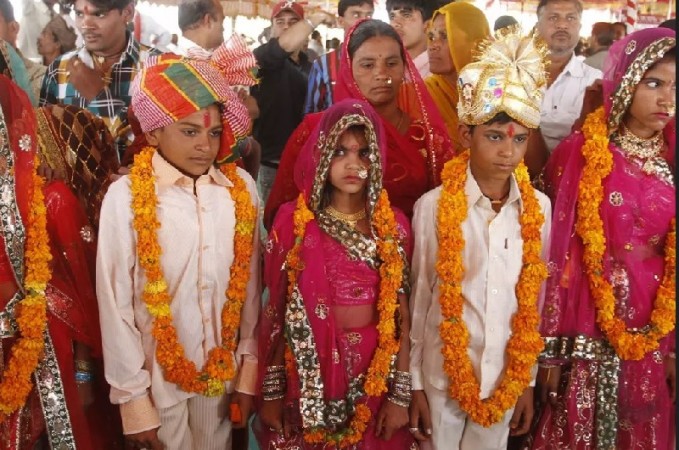
NEW DELHI: The Union government has released alarming statistics showing thousands of child marriages occurring across India over the past three years. The most incidents were reported in Tamil Nadu, Karnataka, West Bengal, Telangana, Andhra Pradesh, Assam, and Maharashtra.
On Wednesday, Additional Solicitor General Aishwarya Bhati, representing the Ministry of Women and Child Development, presented these startling numbers to the Supreme Court. The bench included Chief Justice D Y Chandrachud and Justices J B Pardiwala and Manoj Misra.
The data, compiled from state reports, revealed that Tamil Nadu had the highest number of child marriages with 8,966 cases. Karnataka followed with 8,348 cases, West Bengal with 8,324, Telangana with 4,440, Andhra Pradesh with 3,416, Assam with 3,316, Maharashtra with 2,043, Gujarat with 1,206, Uttar Pradesh with 1,197, and Haryana with 1,104.
Bhati also mentioned that authorities in these states managed to prevent a similar number of child marriages before they could take place. Despite this, very few First Information Reports (FIRs) were filed against those involved, under the Child Marriage Prohibition Act of 2006.
An NGO, "Society for Enlightenment and Voluntary Action," highlighted through its counsel that prosecutions of offenders are rare. The NGO argued that states have not provided details on the status of cases registered against those responsible for child marriages. The bench agreed with Bhati that education, awareness, and socio-economic welfare measures might be more effective in eradicating this social issue.
The NGO also raised concerns that in many states, the duties of Child Marriage Prevention Officers (CMPOs) are assigned to district magistrates and other officials. They argued for the appointment of dedicated officers for this role. Bhati responded that district magistrates, sub-divisional magistrates, block development officers, and tehsildars have been given additional CMPO responsibilities because their influence carries weight with the public.
The bench reserved its verdict and stated that it would consider what directions and guidelines could be provided to strengthen the efforts of both Union and state governments in eradicating child marriage.
Supreme Court Denies Open Court Hearing for Review Petition on Same-Sex Marriage Judgment
LGBTQ Rights: SC Judge Recuses from Same-Sex Marriage Review Pleas